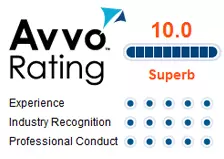In criminal law, and therefore in a drunk driving trial, winning simply means showing that there is a reason to doubt that the crime has been proven. Therefore, you beat the drunk driving charge at trial by showing that there is a reason to doubt:
- That you were drunk
- That you were drunk while driving
- That you were driving at all
- That you were driving on a “public highway”
- That you were driving “a motor vehicle”
Most non-lawyers think of winning in terms of proving innocence. They are looking for a defense in terms of a “smoking gun.” Absolute proof that the crime was not committed. Many non-lawyers think that in order to win a drunk driving trial in Michigan we DUI defense lawyers have to prove that our client is innocent.
The reality is that the defendant (the person accused of drunk driving) doesn’t have to prove anything. This is what the idea of burden of proof is all about. It is for the prosecutor to prove every element of the crime beyond a reasonable doubt. According to the Michigan standard jury instructions read to the jury at every drunk driving trial a reasonable doubt is a:
“fair honest doubt growing out of the evidence or lack of evidence. It is not an imaginary or possible doubt, but a doubt growing out of reason and common sense. A reasonable doubt is just that, a doubt that is reasonable after a careful and considered examination of the facts and circumstances of the case.”
In thinking about proof at trial it is important to understand that in Michigan the prosecutor must first prove what are called “common elements.” These common elements of drunk driving include that you were “operating” meaning you were in control of the motor vehicle.
What is a motor vehicle? This might include a golf cart, a go cart, a moped, etc. At least in Michigan it does not include a horse or bicycle. The prosecutor must also prove that you were not on private property but rather in a place generally open to the public.
If there is a reason to doubt any of these common elements then the jury should return a not guilty verdict.
Once the prosecutor proves that you were operating a motor vehicle on a public highway, the prosecutor must next prove that while doing so you were OWI.
The prosecutor can prove OWI by showing that you were either OUIL or UBAL. OUIL is the “common law” theory, meaning the prosecutor can use all of the observations made by the police officer about your appearance and behavior to prove that you were operating under the influence of liquor (OUIL) and thereby to prove that you were operating while intoxicated (OWI). The prosecutor does not need the breath or blood test results to prove this OUIL theory of OWI.
So, what reasonable doubt is there in your case relative to the OUIL theory? If you failed some or all of the field sobriety tests then perhaps there is an “innocent” explanation for this. In other words, is there a reason to doubt that the failure of these so-called tests was caused by alcohol? Were the tests properly administered? What other factors may have played a part in your performance, such as weather or road side conditions?
These factors, combined with other factors, can help explain why you behaved the way you did at the roadside. A good defense to the OUIL theory of OWI at trial would also emphasize what you did correctly, as this is evidence of sobriety.
What this all means is that in order to win the OUIL theory the defense doesn’t have to prove anything. The defense need only show that there is a reason to doubt that the roadside behavior proves that you were OWI because of OUIL. Alternatively, the argument is that the roadside behavior does not prove beyond a reasonable doubt that you were drunk.
The other theory the prosecutor can use to prove OWI in Michigan is to show that you were UBAL.
UBAL can be proved based only on the results of the breath or blood test, and there are many ways to defend a breath or blood test. Which one will best apply in your case will depend on a careful evaluation of the facts. In the case of a breath test, this will require a thorough discussion about how the breath test was administered and a more complete medical history to determine if there might be a medical explanation for the test result.
It is also important to know if the machine used to test was your breath was properly assembled, properly maintained and kept in good working order, and that the officer that tested your breath was properly trained and followed this training in administering your test.
In the case of a blood test finding a reason to doubt the blood test results will require a thorough understanding of how the blood sample was collected, transported, stored, prepared for testing, tested and how the results were reported. Also, how the equipment used to test your blood was calibrated and maintained.
Again, your obligation is not to “prove” that the test is wrong, rather, your obligation is simply to help the jury understand that there is a reasonable doubt that the test result is reliable.
This is because it is the breath or blood test results alone which are used to prove that you had an unlawful bodily alcohol level (UBAL) when you were driving. If we can show that the test results are not proof beyond a reasonable doubt that you were UBAL then we can earn an acquittal on this theory as well.
If you’d like to learn more about how to beat a Michigan OWI at trial, contact the Barone Defense Firm today for your FREE case evaluation.









